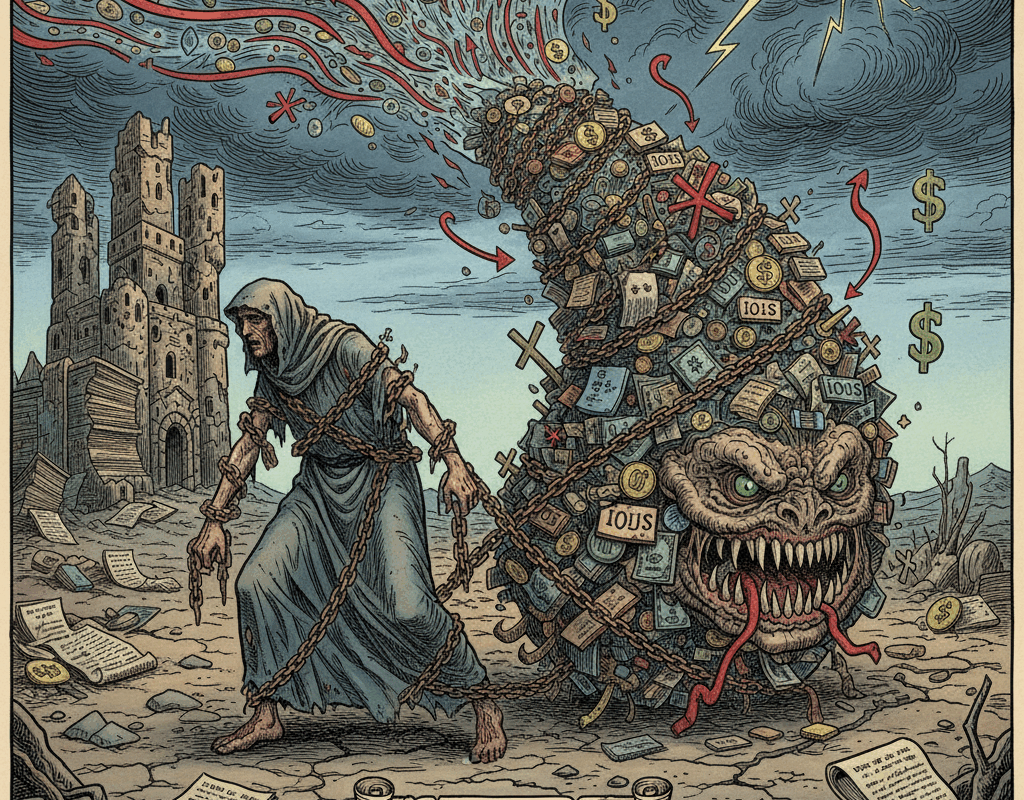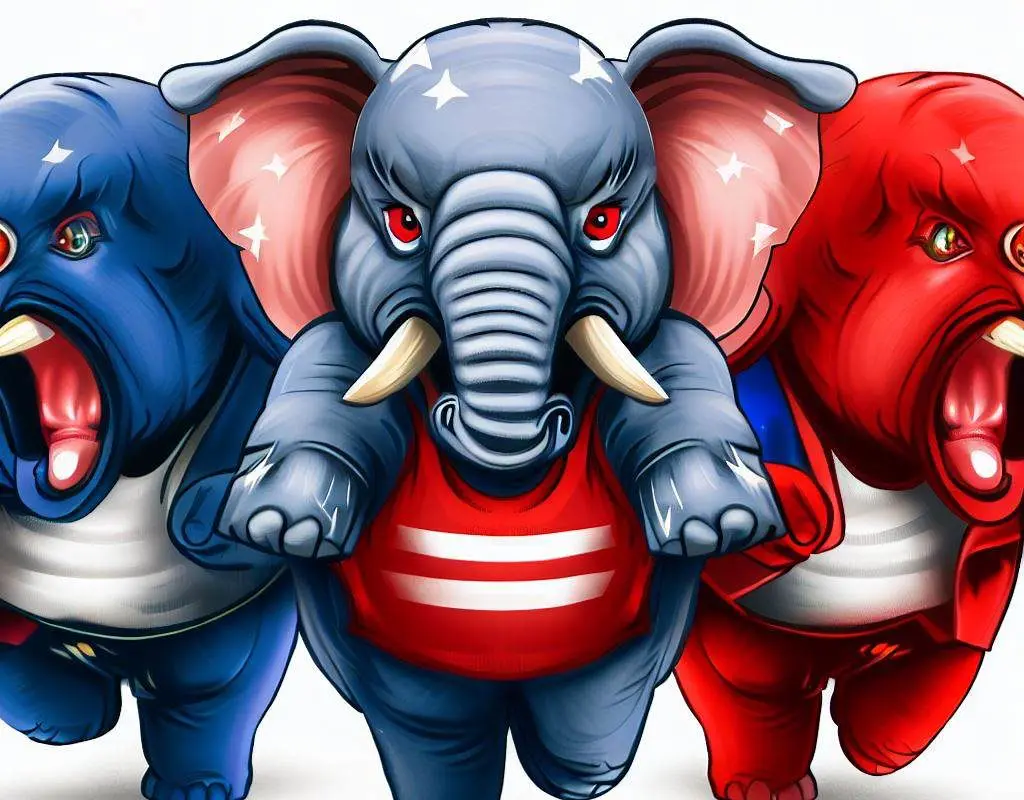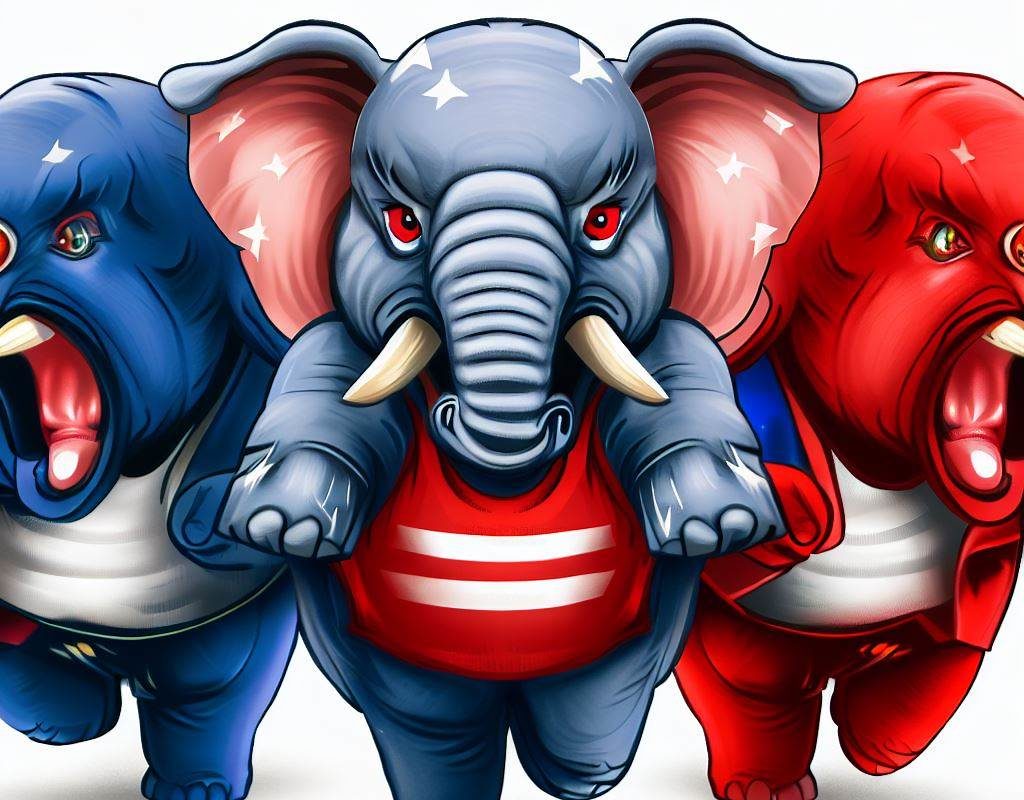In fact, not only are we going further into debt for no good reason, but we’re going further into debt for a bad one — actually, two very bad ones.
The same fiscal hawks that yelled histrionically about refusing to take on debt — even in times of crisis — let the GOP budget bill for FY2026 sail through without a peep despite it adding a debt burden of almost $4 trillion over the next 10 years.
And for what? The first terrible reason is so that a gaggle of wealthy donors can get even wealthier, have more lavish weddings, build ever more elaborate doomsday bunkers, recreate company towns from The Jungle, cavalierly flit off to space, and so on. Never could I have imagined Gilded Age 2.0 would be so dumb.
After screaming bloody murder for literal decades and lecturing Democrats about reckless spending and balanced budgets, the Republicans simply let this gigantic albatross sail right through without so much as a debate. It’s as if the national debt were suddenly the Epstein files — something you should weirdly be ashamed of still caring about after being whipped into a frenzy about it for years (including being cajoled to the Capitol to break the law on behalf of someone who is above the law).
“Reckless spending” is fine when my team does it, seems to be GOP orthodoxy. Future generations be damned — we only think about them under Democratic Presidents. Suddenly, it has become desirable to saddle the nation with more debt for no good reason.
Establishment of a police state
The second terrible rationale for taking the US further into debt is to create a police state in America, with literal concentration camps. Despite campaigning on deporting the alleged set of violent criminals within the undocumented immigrant demographic, Trump and his slavering goon squad have been picking up fathers, landscapers, students who posted things they don’t like on social media, random South Koreans, and anyone Tom Homan thinks looks a little bit too brown. In other words, the government is spending billions and billions of your tax dollars to get rid of hardworking taxpayers — a hateful Dunning-Kruger approach that is toxic both politically and economically.
This GOP tax and spending bill will also empower the federal government to take over Democratic cities — despite the fact that red states have more crime. And to deploy America’s federal law enforcement staff away from national and international crimes like sex trafficking and fraud, and turning them towards’ providing photo ops in DC. Because appearances are all that matter to this particular president and his regime.
All this to create the kind of police state with standing army that the Founders would have laughed out of the room — because they had just fought a bloody war to defeat that kind of autocratic nonsense. With its cash infusion of an eye-popping $171 billion across federal agencies and other new border security and detention facility funding, ICE is poised to become the 4th largest branch of the military — but deployed on home soil, increasingly against Americans.
The GOP Budget Bill in 7 Minutes
Ask the Bill: An HR1 NotebookLM
But you don’t have to take my word for it — here you can talk directly to the bill in natural language, in NotebookLM:
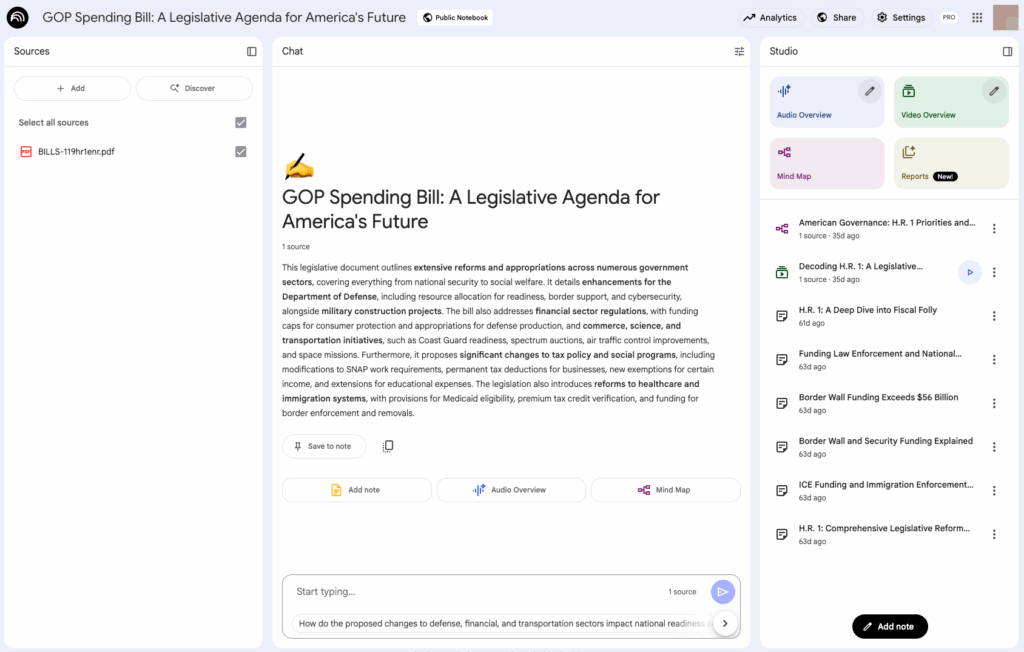
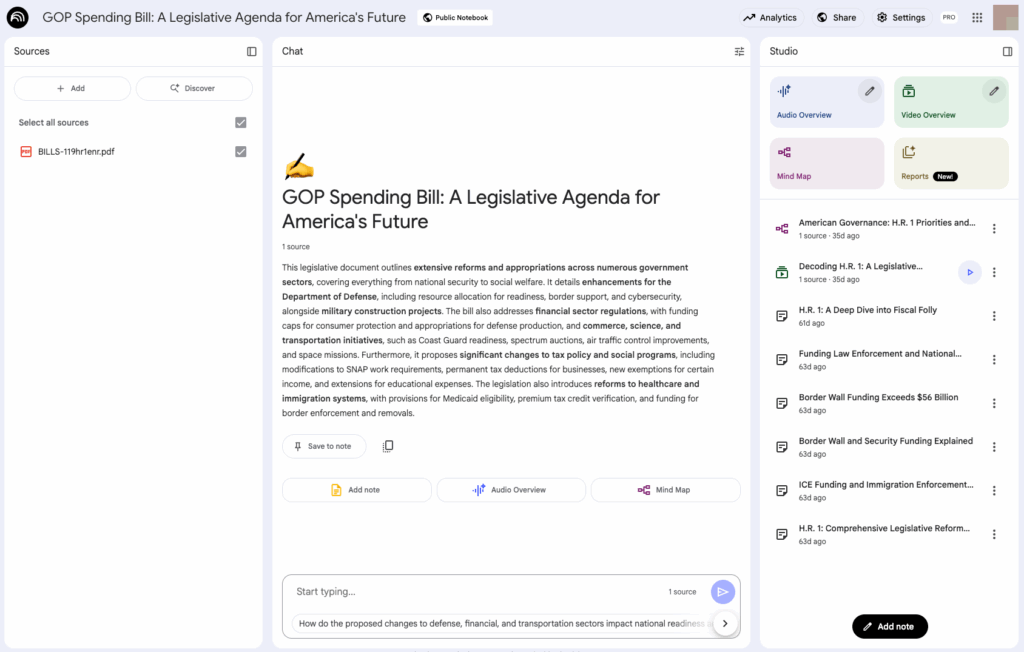
GOP budget bill winners
See a full table of the winners and the new lay of the land and the immense growth of the administrative state that the GOP claims it is trying to eradicate:
Continue reading The GOP budget bill takes the US further into debt for no good reason